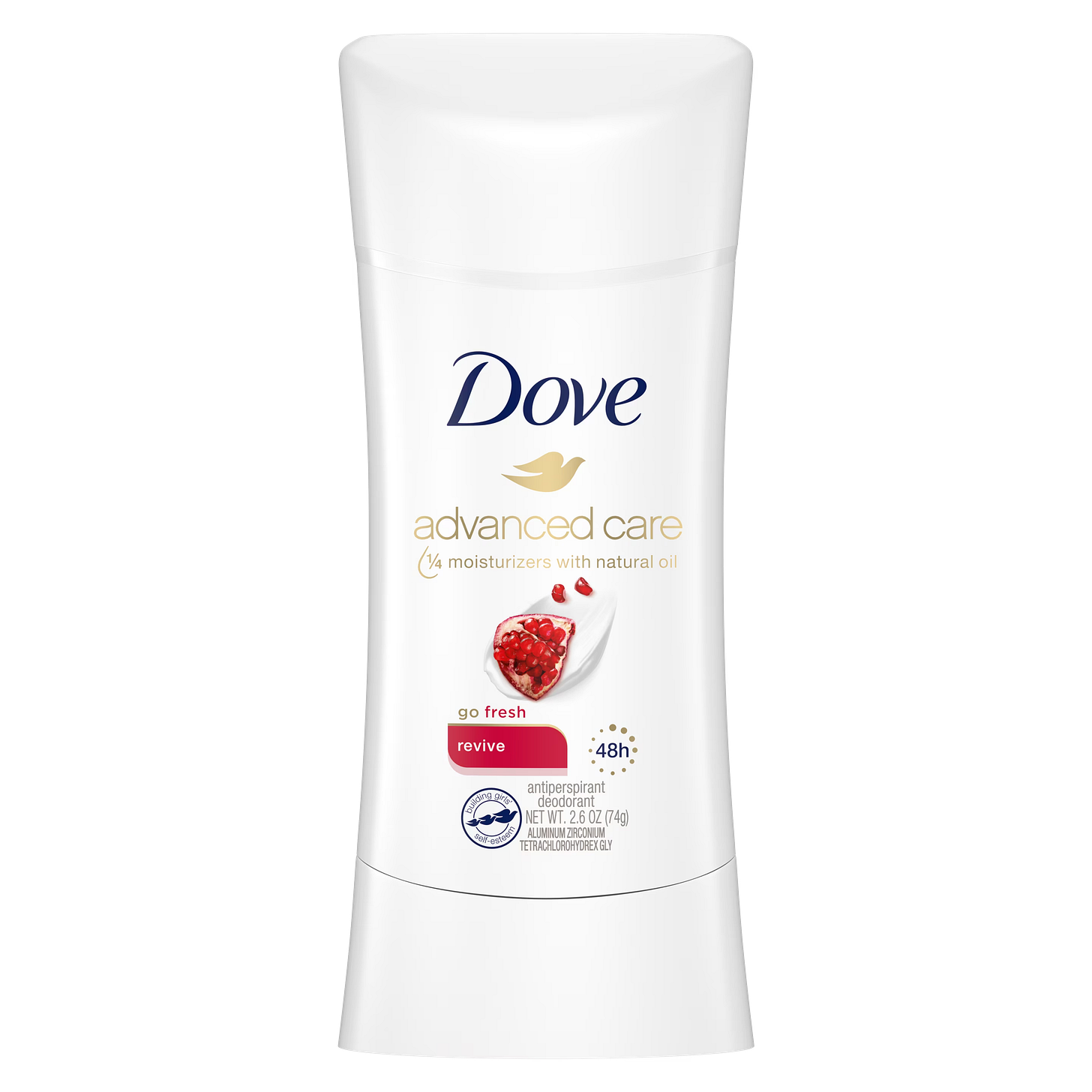The Dove Advanced Care Antiperspirant Deodorant Lawsuit: A Dive into the Allegations of False Advertising
A proposed class action was filed against Unilever United States, Inc., which owns Dove, one of the world's most popular personal care brands. The lawsuit, known as Berkley v. Unilever United States, Inc., alleges that Unilever has been falsely advertising its Dove Advanced Care antiperspirant deodorant as containing only natural ingredients, including a significant amount of natural oil.
According to the lawsuit, the company's claims on the front label of the product, specifically the statement “¼ moisturizers with natural oil” and images of fruits or vegetables, have led consumers to believe that Dove Advanced Care antiperspirant deodorant is made entirely from natural ingredients. The label suggests that a considerable part of these natural ingredients are oils. However, the lawsuit contends that the products actually contain only minuscule amounts of oil, which are synthesized using chemical solvents.
Contrary to the front label's emphasis on natural oils, the lawsuit reveals that the most prevalent ingredients in the Dove Advanced Care antiperspirant deodorant are stearyl alcohol and C12-15 alkyl benzoate, neither of which are natural nor oils. This discrepancy raises questions about the authenticity of the "natural" claims made by the company.
The case also highlights the fact that the two oils listed on the product's back-label ingredients—hydrogenated castor oil and helianthus annuus (sunflower) seed oil—are only the sixth and twelfth most predominant ingredients by weight, respectively. Moreover, these oils are not natural ingredients but rather synthetic substances that require chemical reactions and the use of petrochemicals to produce. This information directly contradicts the natural oil claims made on the front of the product.
The complaint also sheds light on the environmental and health issues related to producing these synthetic oils. For instance, n-hexane, an industrial chemical derived from petroleum and used to extract oil from sunflower seeds, is known to cause environmental damage to air and water sources when discarded. Additionally, n-hexane is a skin irritant that can lead to redness, blistering, and superficial burns. Medical professionals recommend seeking medical attention if exposed to this chemical.
As the lawsuit points out, one of the reasons consumers prefer natural ingredients is due to synthetic ingredients' negative health and environmental effects. Therefore, it is misleading to highlight 'natural' oils made with synthetic chemical solvents known to have such detrimental effects.
The lawsuit argues that consumers interpret the phrase “¼ moisturizers with natural oil” as meaning that the added natural oils contribute to the product's moisturizing effects. However, the hydrogenated castor oil is included in the deodorant primarily to reduce surface tension between two substances, not for its moisturizing properties. This fact further underscores the potentially misleading nature of the product's advertising.
The lawsuit aims to represent anyone in New York who purchased Dove Advanced Care antiperspirant deodorant during the applicable statute of limitations period.
In conclusion, the Berkley v. Unilever United States, Inc. lawsuit highlights the importance of accurate and transparent advertising in the personal care industry. As consumers, it's crucial that we stay informed about the products we use daily, especially when the labels promise "natural" ingredients. This lawsuit underscores the significance of clear and truthful marketing practices for companies. As this case unfolds, it will be fascinating to see its impact on advertising standards in the personal care industry.
Get the latest mass torts and class action lawsuit news sent to your inbox – sign up for Moms Justice Alerts free newsletter here.



